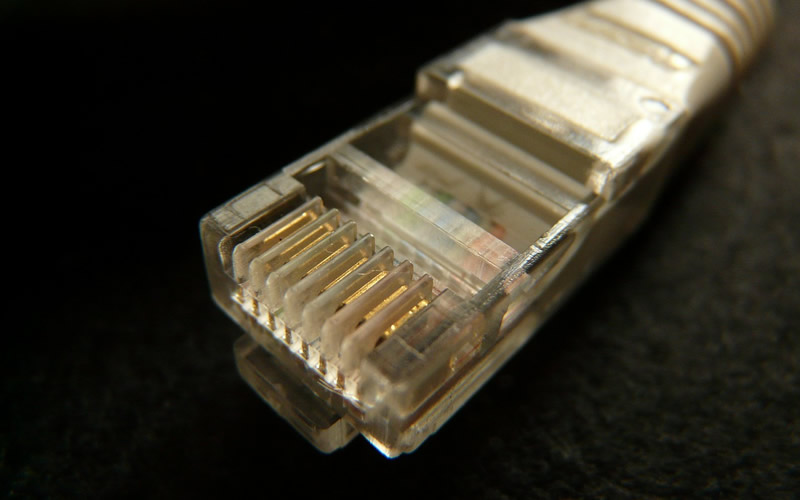
By Lindsay Street, Statehouse correspondent | A Bamberg lawmaker is seeking to repeal 2012 legislation that, he says, effectively ended competition and keeps rural South Carolina from accessing faster internet.

“Internet is an absolute necessity today. Rural South Carolina demands equality,” Democratic Rep. Justin Bamberg said in a press release. “We already fight daily with 20-year-old cell phone signals of ‘1X’ or no service at all when other areas of the state have 5G cell phone data speeds. We will no longer tolerate being cut off from the world both inside and outside of our own homes.”
Introduced Jan. 21, House Bill 4993 would authorize and regulate local government-owned broadband internet access service providers, overturning a 2012 state ban. So far, he is the only sponsor.
- For more information on telecommunication companies and their fight against municipal-level broadband, click here.
Local governments would then be allowed to create or contract with private companies to create their own local internet service providers.
“Internet providers keep giving us the same empty promises year after year. It is time to give rural communities modern internet access,” Bamberg said. “This legislation will also benefit those in urban areas where large companies dominate the market due to limited service area competition such that costs of even basic internet service has unreasonably continued to balloon.”
So far this session, the House already passed a bill that seeks to use state funds to improve broadband access. House Bill 3780 calls for a broadband fund and provide that any provide that municipalities can lease property to broadband providers. It is now in the Senate Judiciary committee and not currently scheduled for a hearing.
The state is also receiving federal funds to expand rural access. In a series intended to improve internet connectivity in South Carolina, the state has received $9.75 million for expanding access in Orangeburg County and $8.1 million for expanding access in Charleston and Berkeley counties. Under the Reconnect Program, the state could see more money this year.
In other news:
![]() Two McMaster nominations withdrawn. An 83-year-old law has led to Greenville Republican Rep. Bobby Cox to withdraw his nomination to lead the newly-formed Veterans’ Affair Office, and tax woes have sunk the nomination of North Charleston Police Chief Reggie Burgess to lead the S.C. Department of Public Safety. Both nominees announced their withdrawal Thursday. Cox said he would comply with state law, and Burgess said that while his unpaid taxes were paid in full in 2018, the stress on his family has led him to withdraw. Read more.
Two McMaster nominations withdrawn. An 83-year-old law has led to Greenville Republican Rep. Bobby Cox to withdraw his nomination to lead the newly-formed Veterans’ Affair Office, and tax woes have sunk the nomination of North Charleston Police Chief Reggie Burgess to lead the S.C. Department of Public Safety. Both nominees announced their withdrawal Thursday. Cox said he would comply with state law, and Burgess said that while his unpaid taxes were paid in full in 2018, the stress on his family has led him to withdraw. Read more.
Senate panel gives favorable report to microplastics study. A bill that directs state agencies to conduct research on microplastic contamination in South Carolina will advance to the full Senate Medical Affairs Committee. On Thursday, a subcommittee unanimously gave a favorable report on the bill, S. 1023, which was reported as part of a green package by Camden Democratic Sen. Vincent Sheheen last week.
- Previous coverage: As municipalities balk at plastics industry, state agencies continues to woo.
Thank goodness for … South Carolina? Mississippi has surpassed South Carolina on some education rankings, and House Speaker Jay Lucas invited the state’s superintendent to address lawmakers Thursday. Lawmakers are looking to model public education after the state that was formerly behind South Carolina in educational outcomes. Read more.
Senate proposes rule change on earmarks. After a report of $37 million in the state budget going to local projects, the Senate has advanced a proposal that would require lawmakers to attach their names to earmarked budget requests, along with the amount requested. Read more.
Attorney general sues Columbia over gun laws. S.C. Attorney General Alan Wilson filed a lawsuit Wednesday in the state Supreme Court against the city of Columbia over its gun-related ordinances. Read more.
Bill allowing beer sales curbside moves forward. A state Senate committee has sent a bill to the floor that would allow those using a grocery shopping service to pick up goods curbside to also buy wine and beer. But Columbia Democratic Sen. Dick Harpootlian says the bill as it stands would not be enforced and could encourage underage drinking. Read more.
Public Service Commission to seek candidates through Feb. 28. The State Public Utilities Review Committee has reopened its search for candidates for utility regulating body S.C. Public Service Commission after it found 11 of 17 candidates unqualified. The new deadline to apply is Feb. 28. Click here for application information.
Santee Cooper gets setback in fight to charge customers. A state judge has rejected state public utility Santee Cooper’s request to stop a case challenging its ability to charge customers billions more for an unfinished nuclear plant project. The trial date is set for April 20. Read more. In related news: While the S.C. Department of Administration declined to give Statehouse Report a timeline of when to expect its report on bids for the utility, some lawmakers say they are expecting the report next week.
- Have a comment? Send to: feedback@statehousereport.com


